
The New Zealand national rugby union team, commonly known as the All Blacks, represents New Zealand in men's international rugby union, which is considered the country's national sport. Famed for their unmatched international success, the All Blacks have often been regarded as the most successful sports team in history.

The Rugby Championship is an international rugby union competition contested annually by Argentina, Australia, New Zealand, and South Africa. These are the four highest ranked national teams in the Southern Hemisphere; the Six Nations is a similar tournament in the Northern Hemisphere.
The 1985–1988 Rugby League World Cup was the ninth Rugby League World Cup tournament held and saw yet another change of format with competition stretched to cover almost three years. The national rugby league teams of Australia, France, Great Britain, New Zealand and Papua New Guinea played each other on a home and away basis. These matches were fitted into the normal international programme of three-match test series between the nations, with a pre-designated match from each series counting as the world cup fixture. The tournament culminated in the 1988 Rugby League World Cup final.

The Australia national rugby union team, nicknamed the Wallabies, is the representative national team in the sport of rugby union for the nation of Australia. The team first played at Sydney in 1899, winning their first test match against the touring British Isles team.
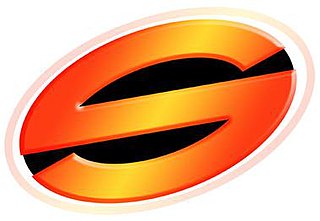
Super League was an Australian rugby league football administrative body that conducted professional competition in Australia and New Zealand for one season in 1997. Along with Super League of Europe, it was created by News Corporation during the Super League war which arose following an unsuccessful attempt to purchase the pay television rights to rugby league in Australia. After two years of legal battles the competition was played for a single season in 1997 alongside the rival Australian Rugby League (ARL) competition before the two merged in 1998 to form the National Rugby League (NRL).
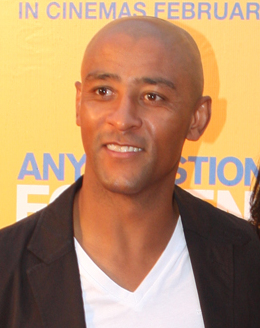
George Musarurwa Gregan AM is a retired Australian rugby union player, and is currently Australia's most capped international player.

The Great Britain national rugby league team represents Great Britain in rugby league. Administered by the Rugby Football League (RFL), the team is nicknamed The Lions.

The Australian national rugby league team, the Kangaroos, have represented Australia in senior men's rugby league football competition since the establishment of the 'Northern Union game' in Australia in 1908. Administered by the Australian Rugby League Commission, the Kangaroos are ranked first in the RLIF World Rankings. The team is the most successful in Rugby League World Cup history, having contested all 16 and won 12 of them, failing to reach the final only once, in the inaugural tournament in 1954. Only five nations have beaten Australia in test matches, and Australia has an overall win percentage of 70%.
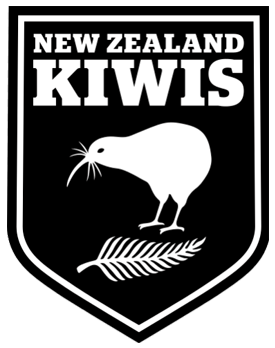
The New Zealand national rugby league team has represented New Zealand in rugby league since 1907. Administered by the New Zealand Rugby League, they are commonly known as the Kiwis, after the native bird of that name. The team's colours are black and white, with the dominant colour being black, and the players perform a haka before every match they play as a challenge to their opponents. The New Zealand Kiwis are currently second in the IRL World Rankings. Since the 1980s, most New Zealand representatives have been based overseas, in the professional National Rugby League and Super League competitions. Before that, players were selected entirely from clubs in domestic New Zealand leagues.

The France national rugby league team represent France in international rugby league matches. They are referred to as les Chanticleers or less commonly as les Tricolores. The team is run under the auspices of the Fédération Française de Rugby à XIII.

The England national rugby league team represents England in international rugby league.
The 1999 Rugby League Tri-Nations series was contested by Australia, Great Britain and New Zealand in 1999. It was the first multi-national rugby league tournament to feature the sport's three world powers since the 1989–92 World Cup. Co-hosts Australia and New Zealand played in the final, which was narrowly won by the Kangaroos. Great Britain didn't win a game of the tournament.

The International Rugby League (IRL) is the global governing body for the sport of rugby league football. Previously known as the Rugby League Imperial Board, the International Rugby League Board and latterly the Rugby League International Federation, the IRL is responsible for the Laws of the Game, the development, organisation and governance of rugby leagues internationally, and for the sport's major international tournaments; most notably the Rugby League World Cup.
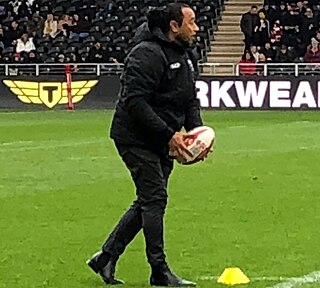
Nigel Faletoese Vagana, also known by the nicknames of "Pablo", and "Chiko", is a former professional rugby league footballer who played in the 1990s and 2000s, as a wing, centre and five-eighth. A New Zealand and Samoa international representative, he retired as the Kiwis' all-time top try-scorer with 19. Vagana played club football in New Zealand for the Warriors, in England for Warrington, and in Australia for the Canterbury-Bankstown Bulldogs, Cronulla-Sutherland Sharks and the South Sydney Rabbitohs. Vagana represented the New Zealand national team 32 times between 1998 and 2006, including playing in the 2000 World Cup. He is also the cousin of Bradford Bulls prop-forward Joe Vagana, and former Silver Ferns netball player Linda Vagana.

Brian "Bluey" McClennan is a New Zealand former professional rugby league footballer and coach. He was previously the head coach of the New Zealand national team and then England's Leeds Rhinos club.
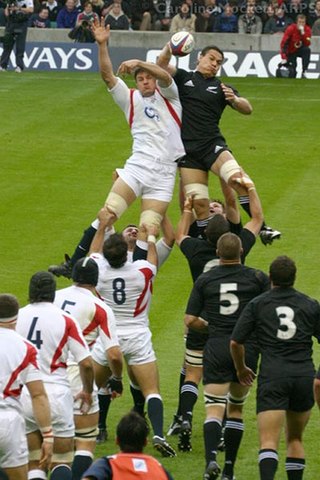
Rugby union is the unofficial national sport of New Zealand. The men's national team, the All Blacks, is currently ranked the third best national rugby team in the world. The sport has been known in New Zealand since 1870. The top domestic competitions are the professional National Provincial Championship and amateur Heartland Championship, and above them Super Rugby, in which New Zealand has five franchises. The country co-hosted and won the first ever Rugby World Cup in 1987, and hosted and won the 2011 Rugby World Cup. The men have won three World Cups, tied with South Africa, the most of any other country. They are the current World Champions for Women's rugby union and in rugby sevens for men and women.

The Rugby League World Cup is an international rugby league tournament contested by the top national men's representative teams. The tournament is administered by the International Rugby League and was first held in France in 1954, which was the first World Cup held for any form of rugby football.
The Rugby League Four Nations was a rugby league football tournament run in partnership between Australia, England, New Zealand, and a guest nation which change with every edition.

The 2019 Oceania Cup was the inaugural edition of the Oceania Cup. Contested by six teams, the competition began in June and concluded in November.
The Rugby League World Cup is an international rugby league tournament currently played every four years. The first tournament was held in 1954, hosted by France who had pushed for such a tournament to be approved. Since the first edition, 14 others have been held at sporadic intervals.
















